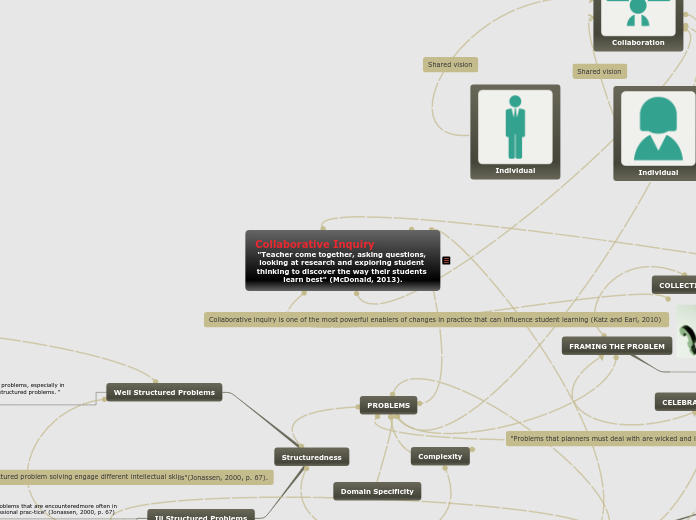Collaborative Inquiry "Teacher come together, asking questions, looking at research and exploring student thinking to discover the way their students learn best" (McDonald, 2013).
FRAMING THE PROBLEM
Inquiry
CELEBRATING AND SHARING
COLLECTING EVIDENCE
ANALYZING EVIDENCE
PROBLEMS
PROBLEM SOLVING
Problem Representation
Problem Type
Design Problems
Trouble Shooting Problems
Decision Making Problem
Dilemmas
Logical Problems
Algorithms
Story Problem
Rule Using Problem
Diagnosis-Solution Problem
Strategic Performance Problem
Situated Problem
Individual Differences
Metacognition
Familiarity
Domain and Structural Knowledge
Cognitive Controls
General Problem Solving Skills
Affective and Conative
Epistemological Beliefs
Structuredness
Well Structured Problems
"The most commonly encountered problems, especially in schools and universities, are well-structured problems. "(Jonassen, 2000, p.66-67)
Ill Structured Problems
"Are the kinds of problems that are encounteredmore often in everyday and professional prac-tice" (Jonassen, 2000, p. 67)
Complexity
Domain Specificity

Collaboration

Individual

Individuals

Individual

